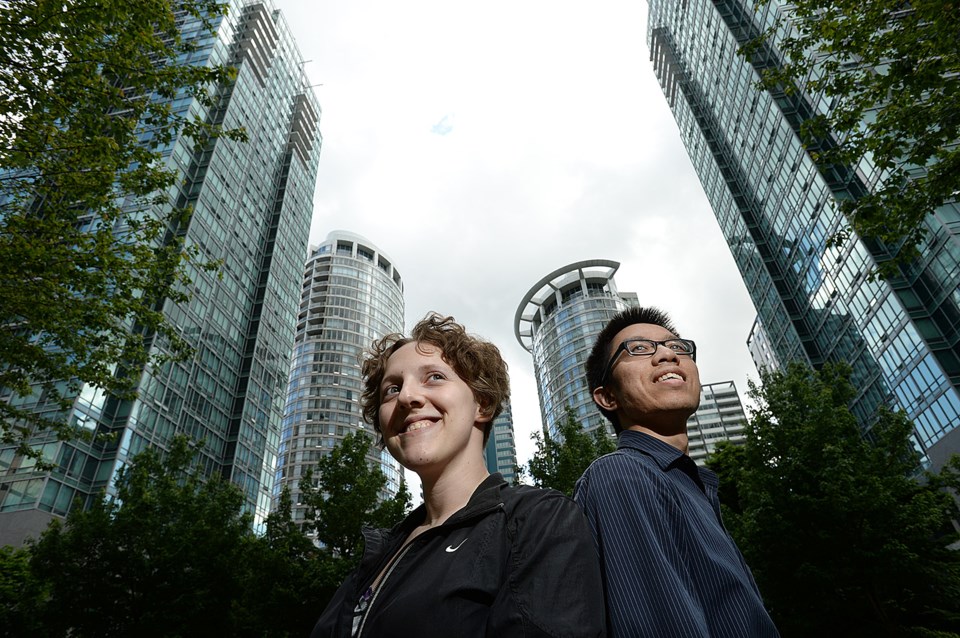Two young Vancouverites say advice offered in their new ebook can help readers beat the high cost of living in Vancouver.
Celestian Rince, 25, and his girlfriend of five years Stephanie Williams, 27, say by stretching every dollar, they can cut grocery costs down to $230 for both, go on foreign vacations twice a year, and hope to retire by their late 30s.
The couple have almost entirely stopped eating at restaurants and rarely drink coffee or alcohol. Their combined income is about $54,000 a year, and home ownership and becoming parents don’t interest them, with the decision to be child-free a lifestyle choice and not a financial one.
They both work downtown, and live in a $732-per-month one-bedroom apartment in a Gastown housing co-op (which will rise to $800 soon) that allows them to walk and cycle instead of using transit. Both authors are vegan but Rince said a meat diet would likely only add about 20 per cent to the grocery bill.
The 40-page book is called Incoming Assets: A Guide to Affordable Living in Vancouver and Beyond, and can be found in Kindle format at Amazon.ca. Further tips and a blog are on their website incomingassets.com.
The couple’s plans were sharply criticized by many online commentators as hopelessly naïve and unrealistic. Yet the authors counter every critique at length on their blog.
The most contentious point is housing cost. Some critics said their subsidized housing in Gastown is far too rare for the average Vancouverite to use as a model, and if the rent was much higher, all their other carefully planned savings would simply be wiped out.
Speaking to the Courier, Rince countered that their co-op is for low and moderate income earners, and some critics had confused it with an entirely different sort of welfare-level social housing.
“In fact, the co-op we live in now is the most costly housing we’ve ever been in,” he said, adding that it shouldn’t cost much more to live in downtown Vancouver than in Surrey, with “micro-suites” available downtown for $750 or less. They moved into their B.C. government-funded co-op in fall 2010, after luckily finding the ad on Craigslist.
More than half of the couple’s income goes towards savings and “passive investments.” They favour indexed funds, which are mutual funds for the market as a whole, find that high interest GICs are best for the short term, and avoid individual stocks and bonds.
For regular savings accounts they use a small Vancouver bank called People’s Trust — with a three percent interest rate, the highest they’ve seen in Canada — and also recommend President’s Choice Financial and Tangerine Financial.
“We think you should never be paying money for a basic bank account,” Rince said.
Rince, who was born in Singapore and moved to Canada at age three, rebuts critics’ complaints that their frugal lifestyle would be too “boring” for most Vancouverites.
“Not everyone wants to live by eating out and go to the theatre at full price,” he said. “We hike almost each weekend, and we buy many discounted tickets to concerts and theatres from box offices. The Vancouver Symphony Orchestra has $15 tickets for students, the library regularly has free film screenings and talks, and so on. It may be a cliché, but life is indeed what you make of it.”
stromp@telus.net



